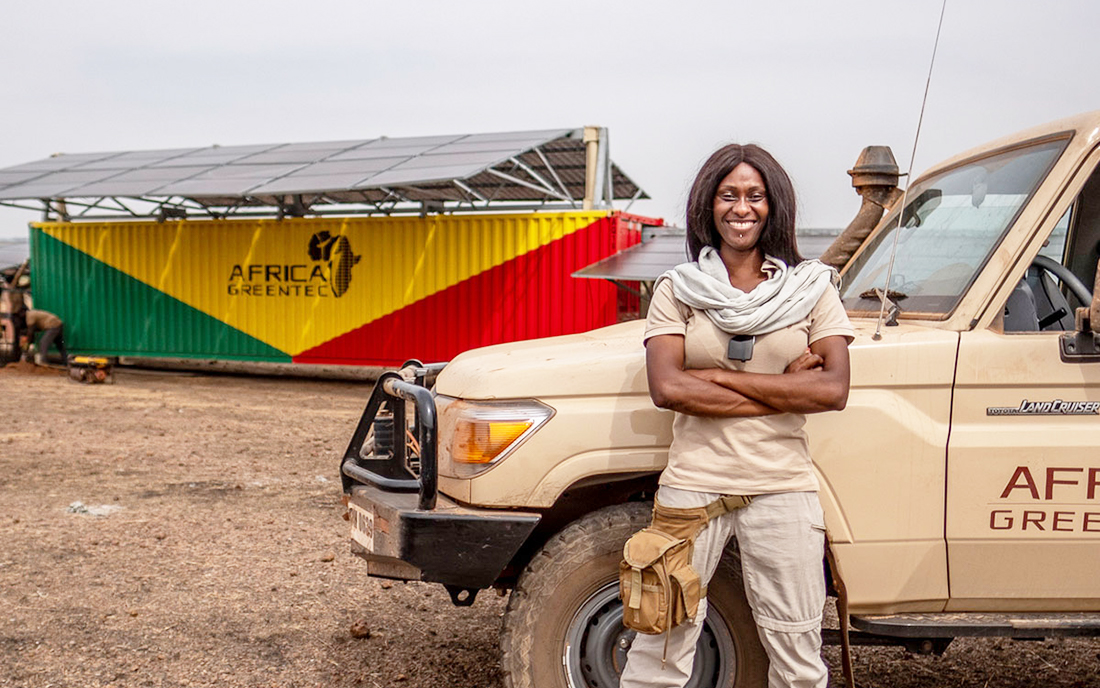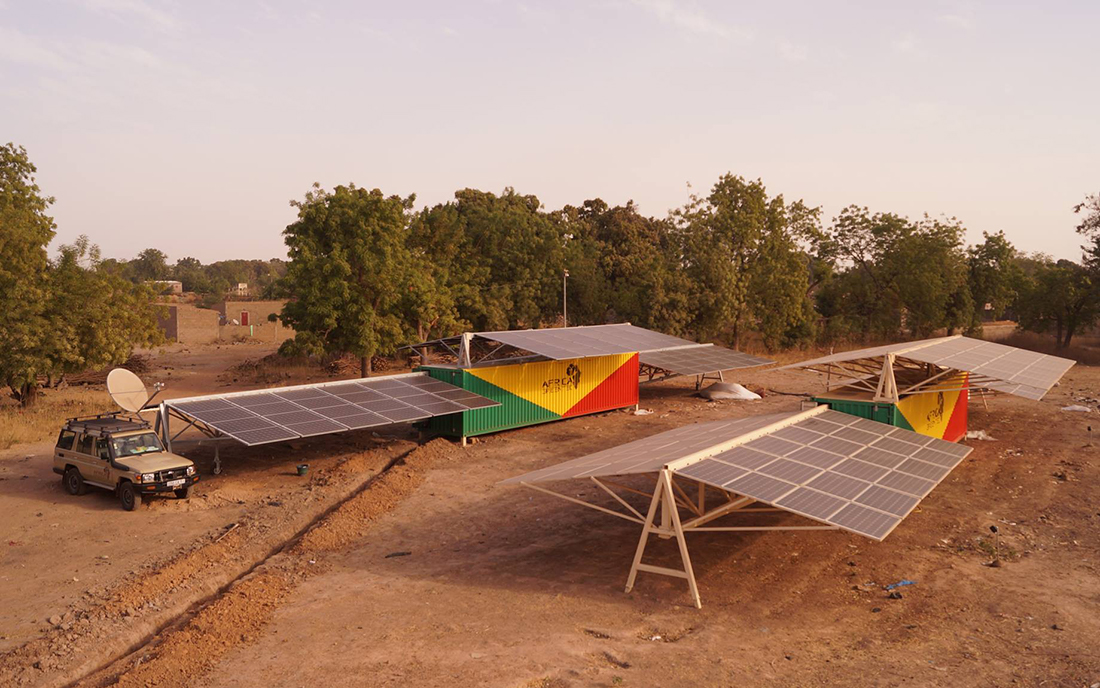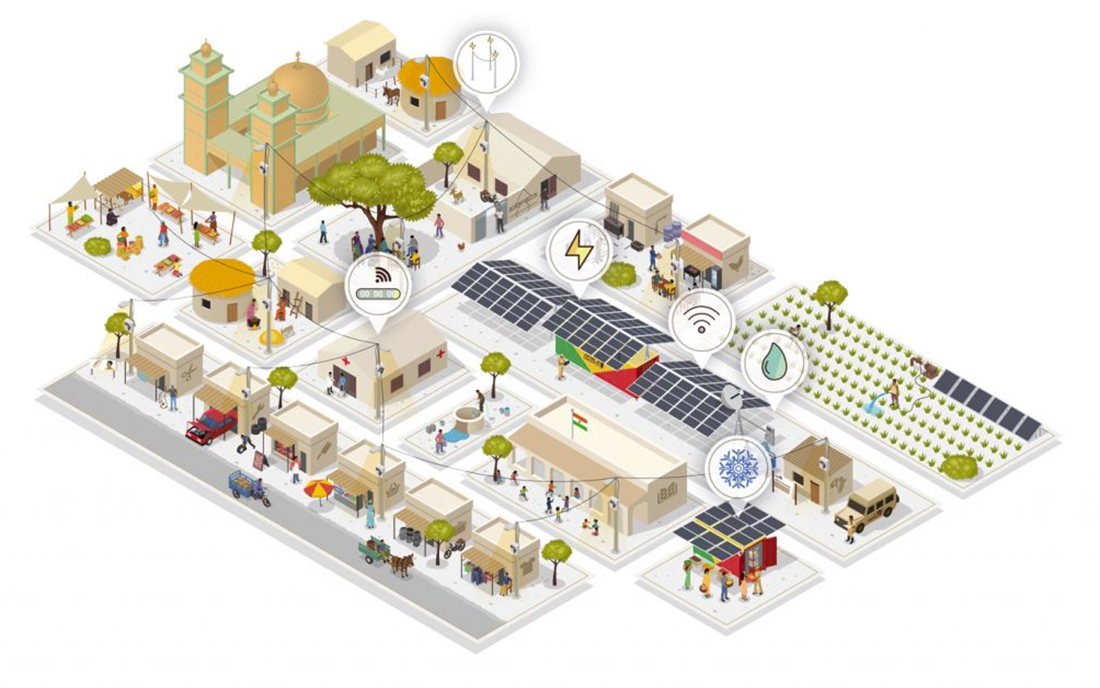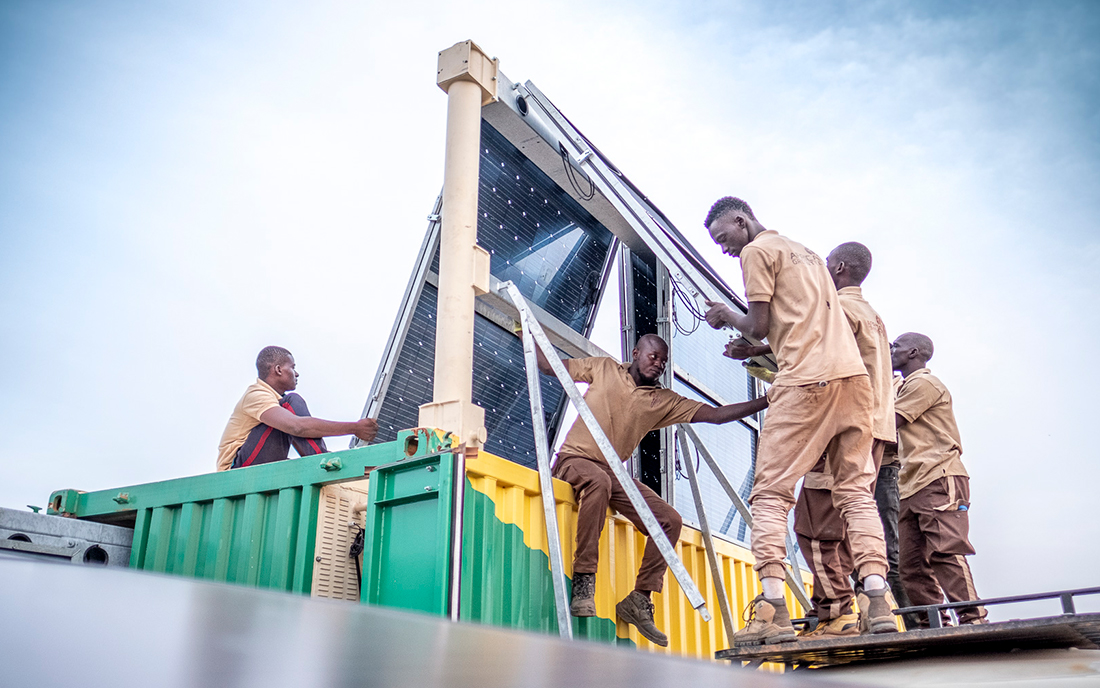Why we are investing in Africa GreenTec

Hardly any international company dares to operate in a challenging environment like rural Mali or Niger. Africa GreenTec does. It supplies villages with internet, electricity, water and cooling equipment and hence boosts a green local economic development.
Everyone is talking about climate protection. Let us stop climate change, further expand renewable energies, and finally boost the energy transition. Statements like these are made increasingly also from the financial markets. Everyone claims to be an impact investor today, who cares for the wellbeing of human kind – even the world’s largest investment companies like Blackrock now invests significant amounts in renewable energies and hence considers itself as an impact investor.
That may be the case, but it is misleading. After all, the enthusiasm of the financial industry stems from the fact that it is now possible to make a green or social investment and generate the same returns as with a conventional investment. If the operation of a European solar farm pays off, the capital market will fund it, regardless of whether it is a green investment or not. That is good for the climate, but does not impress us. We are impressed by investments that would not be made if everything continued as before.
This is why we invested in Africa GreenTec. We ourselves are a young startup whose business (the social search engine Gexsi) does not yet generate huge amounts; our contribution to the current crowd investment campaign is therefore symbolic. But for us, it is an important sign.

Africa GreenTec radically differens from other solar companies. It sees opportunities where others see risks. For example the extremely young population in Mali and Niger, two countries with the highest solar radiation in the world. In both countries there are an incredible number of young, creative and also educated people who want to do something. They only lack the opportunities to use their abilities.
This is where Africa GreenTec comes in. The company does not only supply electricity, but also brings everything to enable a green local development. With their modular system, the solar containers can ensure cold chains, treat water and operate communication services. This holistic approach is remarkable. What impresses us even more is the courage to get involved in countries where others do not dare to go. With Mali and Niger, Africa GreenTec has chosen two countries with extremely challenging conditions. Those who invest here can really make a difference:
- Mali is repeatedly in the media because the north of the country is largely controlled by Tuareg militias and the United Nations blue helmet mission has a hard time in trying to prevent the situation from escalating any further. Just recently, the military took over power and ousted the elected president from office, who was generally known to be corrupt. A step welcomed by the majority of the population, even though not by the international community. All in all, a pretty difficult situation. It is hard to imagine a European solar company to voluntarily enter Mali to do business – at least not in the rural areas outside the capital Bamako. Africa GreenTec does exactly that. It benefits from the fact that the founders of AfricaGreenTec, Torsten and Aida Schreiber, know the country, where Aida grew up, very well.
- Niger is one of the most neglected countries worldwide, where most people probably not even know where exactly it is located. It lies in the middle of the Sahara and Sahel zone, nestled between Algeria and Libya in the north, Mali and Burkina Faso in the west, Chad in the east and Nigeria and Benin in the south. Niger occupies the last (!) place in the Human Development Index of the United Nations, even behind countries still plagued by crises such as Haiti or Southern Sudan. The index measures a country’s standard of living, taking into account factors such as education and health care. Niger is also the country with the highest birth rate worldwide. On average, each woman gives birth to 7.1 children. Consequently, the population is very young. Half of the population is 15 years or younger – in the perspective of Africa GreenTec a major opportunity for the country.
The multifunctional solar containers offer a wealth of opportunities to boost local development. And for those who cannot afford any electricity powered equipment, Africa GreenTec teamed up with Polarstern and helps to distribute simple, low-cost biogas plants that enable households to cook without firewood.

«We empower people to achieve more self-determination and growth through sustainable energy solutions.» Torsten Schreiber, Founder and CEO Africa GreenTec
We at Gexsi seek to close the funding gap for social entrepreneurs whose businesses are too entrepreneurial to be financed through foundations, but which do not pay off even for conventional impact investors, either because the risk is too high or the expected return is too low. Only rarely do you meet people like Werner Armingeon, a retired entrepreneur, who explained to us that for him, an impact investment is successful if the social impact is higher than if he had donated the money directly to a local social organization. We at Gexsi share this perspective and engage where others, due to their respective restrictions, are unable to finance promising social entrepreneurship projects.
It is great to see that more and more social entrepreneurs like Africa GreenTec manage to build a track record even under difficult conditions and reach a stage, where the range of funding options increases. This could be a crowd investment campaign or a cooperation with development agencies or to partner with organizations like the Acumen Fund or the Omidyar Network in the US, which benefit from more flexible structures for social investments.

As a social business, we ourselves seek to operate on a CO2 neutral or positive basis. We already work with CO2 neutral data centers and we started to invest (still tiny amounts) in renewable energies. However, for us, renewable energy investments must generate more positive impact than just a CO2 reduction. Investing in a wind farms on the North Sea or in a Europan solar parks on a green field is not our thing.
We would also like to inspire our users to perhaps become active here and there and participate in projects whose impact inspires them. Platforms like Bettervest regularly offer “high-impact” participation opportunities. Even if, as mentioned at the beginning, the scope is still small, we have set the first accents and, in addition to Africa GreenTec, have been investing in various projects, e.g.:
- mikro solar kiosks in Rwanda, which bring Internet services to rural areas,
- the photovoltaic system of a social enterprise in Nairobi (Sanergy), which has won many awards, and
- floating solar panels for the Maldives, which in a first step have a purely ecological effect (replacement of diesel and especially the transport of diesel between the islands with their sensitive coral reefs); we hope that in the future the technology will be made available not only for vacation resorts but also to weaker target groups.
Last but not least, with Mango Solar, which is building a franchise system via a cloud-based app to bring small solar panels to areas in Africa that cannot be reached even by a local mini-grid, we have supported a start-up whose business model is flanking that of Africa GreenTec. Mango Solar won the first prize in the Gexsi Impact Challenge 2020 together with SensAbility.
Anyone interested in the current crowd investment campaign of Africa GreenTec Information can be found here: https://africagreentec.investments
Do you know of other projects in the solar and energy sector that have an enormous social impact? Write to us!
Dr. Andreas Renner, Co-Founder Gexsi: andreas@good-search.org
Become part of a community, which positively changes the world!
Set a sign and make Gexsi your search engine! It takes less than 60 seconds to download the app or the desktop extension.
![]() Gexsi – the search engine for a better world
Gexsi – the search engine for a better world
Your search generates money for projects which make the world a better place.

